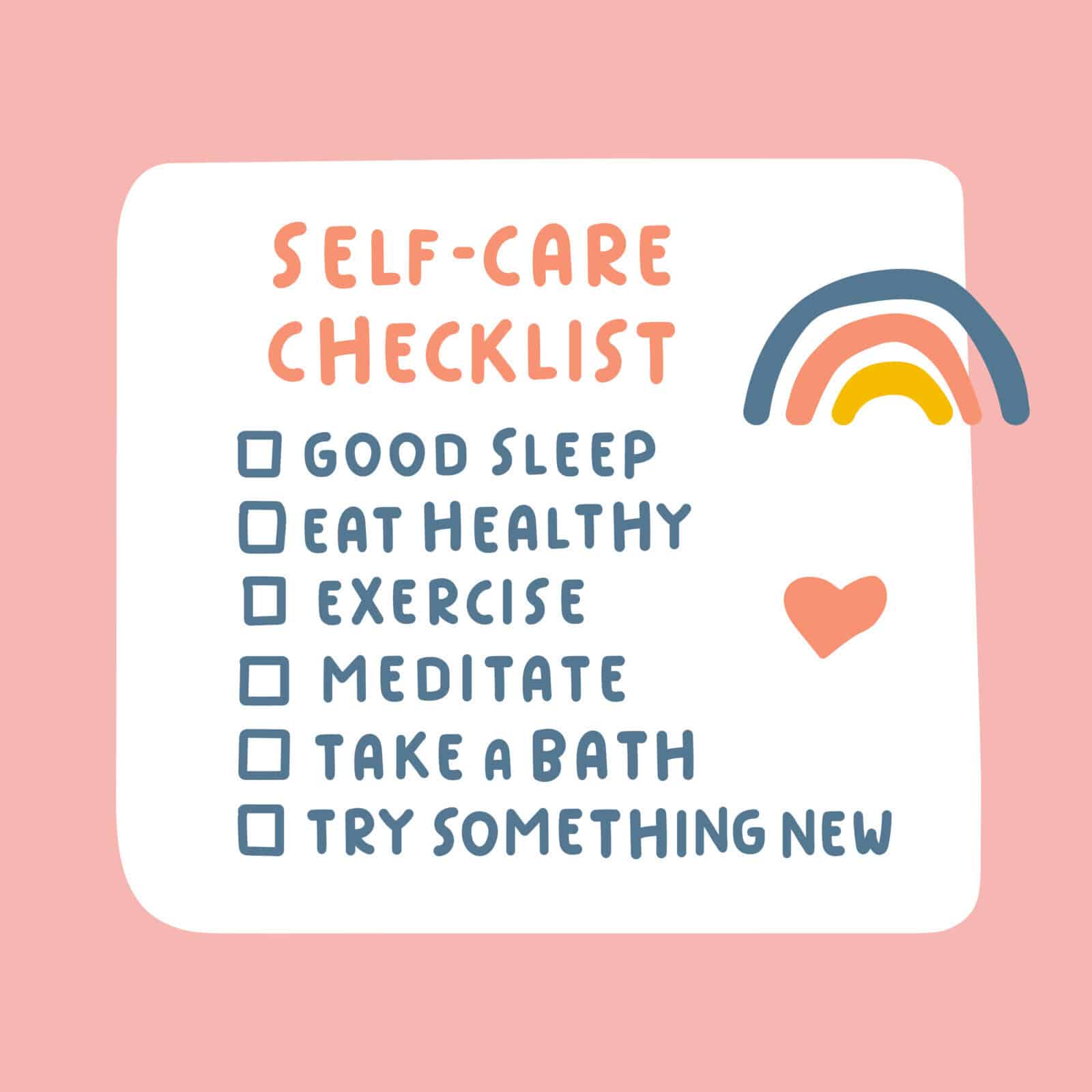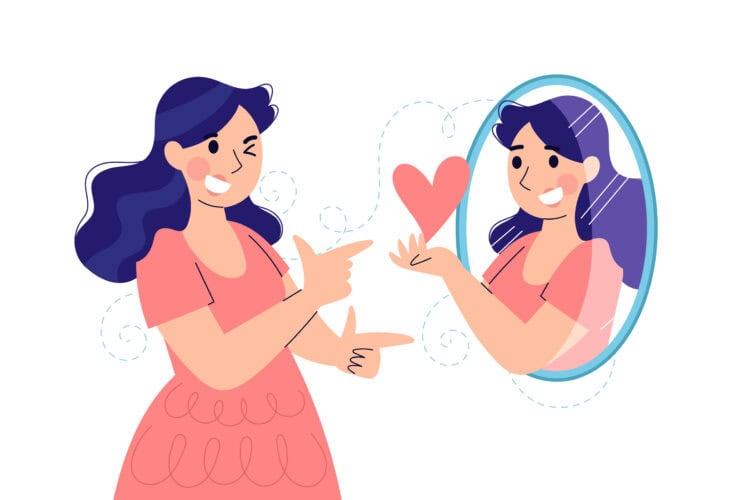By the end of my marriage, I had lost touch with almost every aspect of who I was. In my relationship, if I experienced an emotion other than joy, I was made to feel like something was wrong with me. So, I faked it, presenting an idealized image of myself and my marriage to the world while hiding the truth like a Stepford wife. Carrying the weight of my unhappiness (and my ex’s because that was my fault, too), was suffocating. I posted blissful photos of my “perfect” life on social media, trying to sell myself on the illusion. But in real life, I was drowning.
I felt like my husband despised me – no matter what I did, I was treated with disdain. Eventually, the pain wore me down, and I checked out, finding solace in the emotionless void where my heart used to be. At least there, I didn’t feel hurt. I didn’t feel anything. But despite the lies I told myself day after day, I knew deep in my soul that “we” just weren’t meant to be. I had to get out of my marriage, or there’d be nothing left of me. But when I finally crawled out of that black hole, my self-esteem was obsolete. I felt unlovable.
It’s a relief to say I’ve finally regained my confidence nearly three years later, but it was far from easy. Here’s how I did it, plus expert-backed tips for rebuilding your self-esteem post-divorce, brick by brick.

Let go of the idea that you’re a failure
Like many whose marriage has ended in divorce, I felt like I’d failed at life. As a stay-at-home mom, creating a happy home was my job. Somehow, I couldn’t do that, so I felt worthless. Was I wrong?
Unfortunately, our culture reinforces the idea that staying married to the same person is an achievement, said Stephanie Manes, LCSW, a relationship therapist based in New York City.
“But marriage isn’t a test of character; it’s a choice that might make sense at one point but might not years later. Failure doesn’t enter the equation,” Manes said.
Divorce is not failure – it is proof of courage, agreed Inez Salcido-Kasteiner, LMFT, a California-based therapist specializing in grief and loss at SoulTenders Inc., a private practice.
“When something bad happens in life, we tend to attach pretty harsh judgments to ourselves: ‘I’m not good enough; It’s my fault; I messed everything up,’” she said. But in reality, you can’t force something to work.
Instead of dwelling on how or why you failed at marriage, Manes suggested focusing on how you’ve evolved from the person you were when you got married to the person you are when you leave it. “Remind yourself that staying in an unhappy marriage may be the easy option. Leaving takes strength and courage,” she said.
It took me a lot of work (and therapy) to believe my divorce wasn’t my fault, even though I was the one who pulled the trigger. But once I accepted that it really does take two people to make a marriage work, I was ready to set my first brick in place: Self-compassion.
Acknowledge and work through your grief
Divorce was the right choice, but it wasn’t the outcome I wanted. It broke my heart that we couldn’t work things out, especially for my son. That’s a loss I’ll always mourn. And while facing that pain hurt like hell, suppressing my emotions was no longer serving me.
Manes emphasized the importance of making space for the grief of letting go of your dreams about love and marriage. “The collision between fantasy and reality can be so painful,” she said. Even so, making room for grief is necessary.
Embracing those deep feelings of loss and sorrow can bring us back to life, said Asma Rehman, LPC, founder and director of the Grief Recovery Center, a mental health practice in Houston, Texas. “Grieving is a messy business, and what makes it even messier is that we live in a society where ‘staying positive’ is often seen as the ideal to strive for,” she said.
For years, I’d been living with a false identity, plastering a smile on my face so no one would see through the cracks. Addressing the impossible feelings I’d kept inside for so long allowed me to add another brick to the stack: Self-acceptance.

Treat yourself like you would a loved one
For a while, life dragged me back a foot for every inch I crawled forward. Yes, I was healing, but each time I piecemealed my way through something painful, another, even-more-painful something, was there to take its place.
A broken heart opens up space to shine a light on the tough spots we need to examine in our lives, said Rehman. “Of course, we probably would prefer it if the heart didn’t have to break to let that light in, but what good can come of it if we don’t do something about it? Be kind to yourself,” she said.
“It’s incredibly empowering to discover that we can declare our own value, on our own terms,” said Manes. She advised starting a new internal dialogue that’s gentle, curious, and appreciative. For example, think about some of your routine actions, like cooking for yourself or taking a bath, as a loving gesture.
As I took ownership of my happiness, something remarkable unfolded. I started to let go of the bitterness. I’m far from done, but by caring for myself in the way I’ve always wanted someone to care for me, I set another brick: Self-love. I’m not perfect, and I’ve made mistakes, but I’m not unworthy.

Get to know yourself again
It’s so easy to lose yourself in a marriage, and trust me, I was long gone. I forgot who I was, what I valued, and what gave me true joy. Self-discovery isn’t easy when your whole identity is suddenly stripped away, but it’s amazing what you find when you let go of pretense.
In the last few years, I’ve slowly reacquainted with myself, my desires, and my dreams – the final brick: my identity.
If you don’t know where to start, Manes offers the following tips:
- Be patient and gentle with yourself. Moving through all the emotional layers of divorce takes a bit of time. Trust that the struggle won’t last forever instead of rushing through it (which will backfire when those same issues pop up later).
- Try out new things, especially things that might scare you a little. The best way to connect with your inner strength is to take intentional risks, let yourself be bad at something, and have fun anyway.
- Devote yourself to a new project or goal, whether running a 5K, planning an adventure, or returning to school. It’s so important to feel like you can still dream of things for yourself in the future, to connect to a feeling of aliveness.
- Connect with the friends who uplift you and watch out for those who stir up negativity. There are always those people who love a good victim/villain story. Nothing can be gained from dwelling on that. Keep close to the friends who are there for a good cry and remind you that you really will be okay.
- Find ways to meet other divorced or single friends. Join a running group, book club, or yoga retreat. If you can, consider going on a trip organized for solo travelers.
- Expand your support circle. If you aren’t in therapy, it might be a good time to consider it. For some people, reconnecting to a religion or spirituality is powerful medicine.
I’ve found so much joy and purpose in pursuing my passion, writing. And I’ve learned to keep my social circle small, filled only with those willing to tend to my recovering heart.
I still have soul-crushing moments of sadness for what could have been. And that’s okay. As Rehman said, “We do not get over something like this. What we do is get through it.”
When I picture my carefully crafted stack of bricks, it’s not a wall I see – it’s a tower, and I’m at the top.






